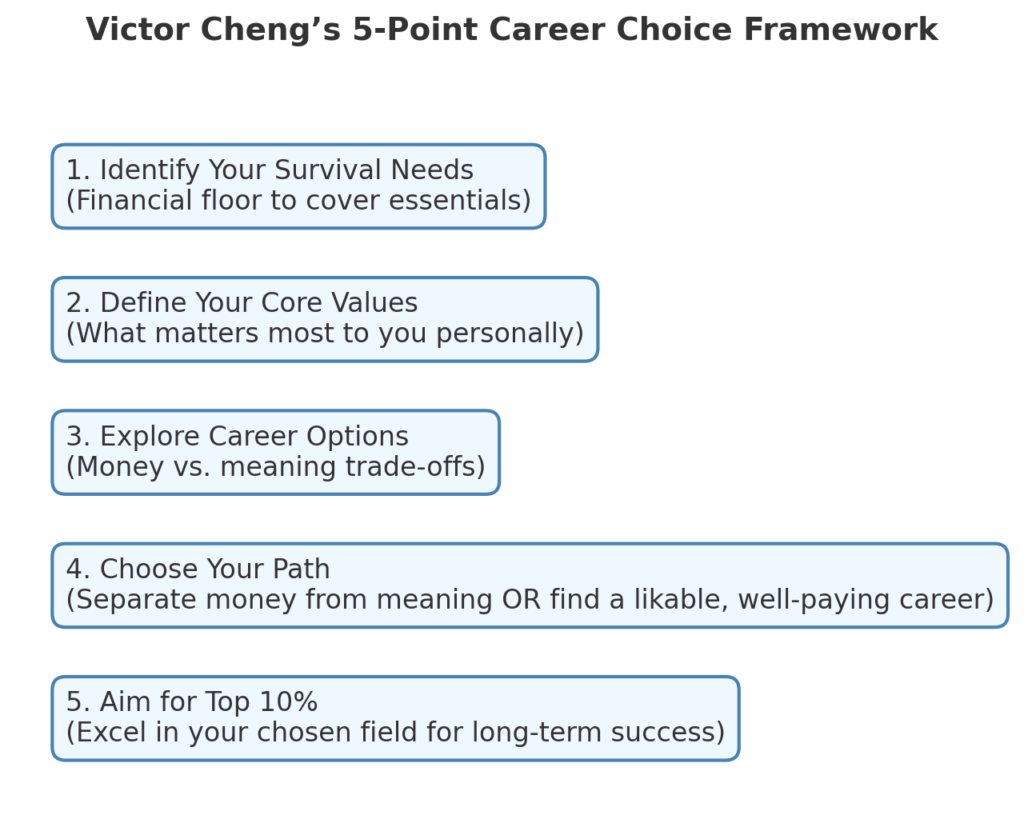One of the most common career questions I hear is this:
“Should I choose a career for the money or for the happiness?”
It’s a great question — because the right answer changes depending on your stage in life.
If you’re in survival mode — no safety net, no family support, and you need income to literally keep a roof over your head — your first priority is simple: choose the path that pays enough to meet your basic needs. In this stage, happiness takes a back seat to survival.
But once you’ve built a financial floor — where you’re not worried about food, rent, or utilities — you have the luxury to weigh money against meaning in a more balanced way.
Two Extremes — and Why They Often Fail
1. The “Do What You Hate for Decades” Plan
Some people pick a high-paying job they dislike, tough it out for 30+ years, and plan to “do what they love” in retirement.
I’ve seen this lead to midlife crises more often than it leads to satisfaction. The risk? You spend your best years drained and unfulfilled.
2. The “Follow Your Passion at All Costs” Plan
Others ignore money entirely and chase their passion from day one — artist, nonprofit work, or low-paying creative jobs.
This can be fulfilling… until financial stress turns that dream into a burden.
The Middle Path
The real sweet spot is earning enough to meet your needs (and ideally more), while genuinely liking the work you do.
There are two main ways to get there:
- Separate Money from Meaning
Work a low-stress, stable job that covers your bills, and pursue your passions outside of work.
Example: Accountant by day, rock guitarist by night. - Find a “Likable” Career with Above-Average Pay
Maybe it’s not as prestigious or lucrative as investment banking or consulting, but you enjoy it enough to work harder, improve, and rise into the top 10% in your field — where the income can be surprisingly strong.
Why Enjoyment Matters
If you like your work, you’ll naturally put in more effort. And that extra effort makes it far more likely you’ll become a top performer — which almost always means better pay.
Being in the top 10% of a career you like beats being in the bottom 10% of one you hate, even if the “average” pay in the hated field looks higher on paper.

The Key Question
When choosing a career path, the most important thing is knowing yourself:
- What do you need financially?
- What do you value most?
- What kinds of work energize you?
The answer isn’t about what your parents, peers, or society admire. It’s about your life. If you’re clear on those answers, you can usually find a way to make it work financially.
Bottom line: You can design a career that gives you both money and happiness. But it requires honesty about your needs, awareness of your options, and the willingness to aim for the top of the field you choose.
